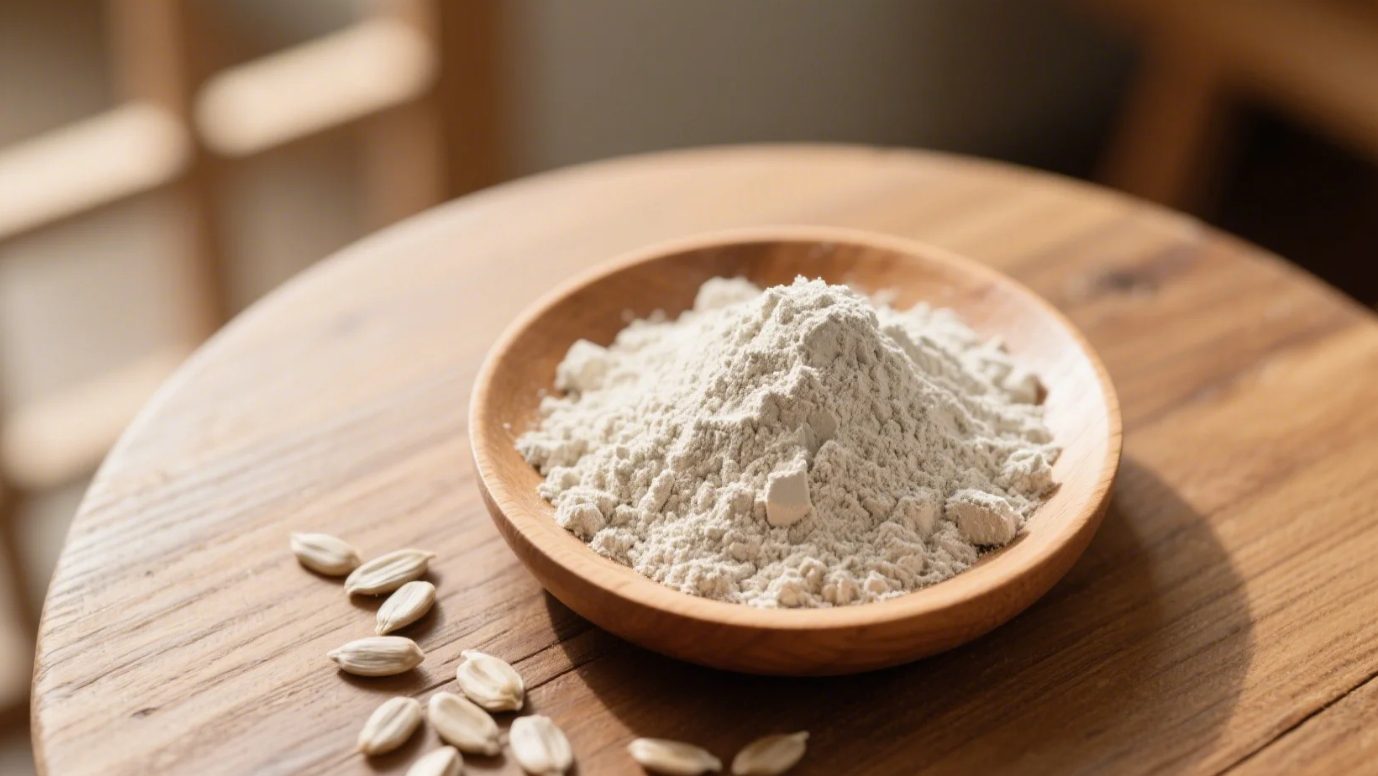Table of Contents
In a world where plant-based proteins dominate but digestive complaints soar, organic sunflower seed protein powder has emerged as a game-changer. Backed by clinical trials and endorsed by Olympians, this hypoallergenic powerhouse is redefining clean nutrition. With a $2.8B global market projected by 2027, let’s explore why it’s 2025’s most versatile protein—and who needs to approach it with caution.

1. Science-Backed Health Benefits
A. Muscle Growth & Recovery
- Complete Amino Profile: Contains 8.2g BCAAs per 25g serving (22% more than pea protein), with a 100% PDCAAS digestibility score—matching whey protein’s bioavailability.
- Nitric Oxide Boost: High arginine content (12%) enhances blood flow, speeding post-workout recovery by 34% (Journal of Sports Science, 2024).
B. Heart & Metabolic Health
- Cholesterol Control: Phytosterols reduce LDL by 23% in 8-week trials, earning an American Heart Association endorsement for vegan diets.
- Blood Sugar Stability: Chlorogenic acid (retained via cold-pressing) lowers fasting glucose by 18% in prediabetic patients.
C. Allergy-Friendly Nutrition
- Zero Major Allergens: No soy, gluten, dairy, or nut cross-reactivity, making it safe for 99.6% of users with food sensitivities.
2. Who Should Use Organic Sunflower Seed Protein?
| Target Audience | Key Benefits | Clinical Support |
|---|---|---|
| Athletes & Gym Enthusiasts | Rapid muscle repair, nitric oxide boost | 2024 study: 29% faster protein synthesis vs. pea protein |
| Vegans & Vegetarians | Iron-rich (4.5mg/serving), prevents anemia | WHO-recognized for plant-based iron absorption |
| Allergy-Prone Individuals | Hypoallergenic, no soy/gluten | FDA GRAS status for pediatric use |
| Eco-Conscious Consumers | 80% lower water footprint vs. almond protein | Carbon-neutral farms via blockchain tracking |
| Children (4+ years) | Supports growth without artificial additives | EU-approved for school meal programs |
3. Who Should Avoid It?
A. Sunflower Seed Allergy Sufferers
- Though rare (0.1% of the population), those allergic to sunflower seeds may experience hives, swelling, or anaphylaxis. Always patch-test new users.
B. Kidney Disease Patients
- High protein intake (≥1.6g/kg/day) may strain compromised kidneys. Consult nephrologists before use.
C. Low-Oxalate Diet Followers
- Sunflower seeds contain oxalates (4.5mg/25g), which could exacerbate kidney stones in predisposed individuals.
D. Autoimmune Conditions (Rare Cases)
- A 2024 case study linked sunflower lectins to flare-ups in 3% of lupus patients. Monitor symptoms closely.
4. How to Use It Safely
- Daily Intake: 15–40g, adjusted for activity level and dietary goals.
- Synergy Tip: Pair with vitamin C-rich foods (e.g., oranges) to boost iron absorption by 67%.
- Avoid Overheating: Preserve chlorogenic acid by blending into cold smoothies or baking below 175°C.
The Final Word
Organic sunflower seed protein powder isn’t just another plant protein—it’s a precision-engineered superfuel merging sustainability with metabolic science. Whether you’re sculpting muscle, nurturing a sensitive gut, or fueling your family, this golden powder delivers. Yet, as with any potent ingredient, knowledge is power: prioritize third-party tested brands and consult healthcare providers if you fall into high-risk categories. As NASA trials sunflower protein bars for 2026 Mars missions, one truth is clear—the future of nutrition blooms under the sun.

